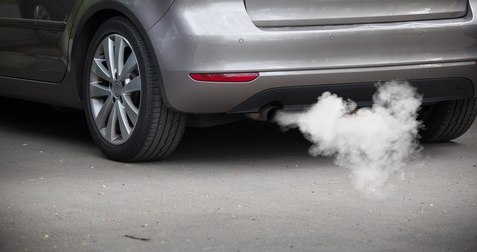
easyJet cyber-attack compensation action
We represent clients pursuing easyJet cyber-attack compensation claims as victims of the recently discovered incident that hit the headlines in May.
Some 9 million customers have been subject to a cyberattack where personal information has been exposed. Thousands of the victims may also have also had payment card data exposed as well. Whether you had personal details or payment card data exposed, you could be eligible to claim compensation with us on a No Win, No Fee basis.
This action is one of the over 50 group and multi-party cases we have launched as a specialist firm of Group Action Lawyers.

BA data breach compensation claim: join the action today
If you have yet to start your BA data breach compensation claim, you still have the chance to sign-up and now and benefit from our No Win, No Fee representation.
However, time is running out to join. There is a court deadline for joining which falls early next year and, if you miss this, you could miss out on your chance to receive thousands of pounds in compensation.
As specialist Group Action Lawyers fighting for justice in over 50 group and multi-party actions, we can tell you from considerable experience that people will miss the deadline. In fact, people miss the deadlines all the time and we often receive new enquiries from people who have lost out on the chance to claim thousands or even tens of thousands of pounds in compensation from actions that closed years ago.

US Mercedes emissions settlements
We are pleased to see the Mercedes emissions settlements that have taken place in the US, with $2.2bn set aside for resolving both civil and environmental claims.
Although this does not have a direct influence on any UK cases here, it is positive to see the news of the settlements. Action in the UK is taking place and you can be eligible to claim compensation if you are affected by the issues here in the UK.
Here is how we may be able to help you.

Emissions compensation claims with The Group Action Lawyers
The Group Action Lawyers fight for justice in a number of emissions compensation actions, representing clients for claims on a No Win, No Fee basis.
This includes cases against Mercedes, Porsche, and Nissan and Renault. If you have been a part of a recall for any of those carmakers, we may be able to take a compensation case forward for you now.
Here is a little advice about our emissions work and our experience in this area of law. To get in touch with the team now, please see our Contact Page here.

Hernia mesh compensation claims: what you need to know
We represent victims for hernia mesh compensation claims and we can work for our clients on a No Win, No Fee basis, with a free initial case assessment.
We understand how severe the pain and problems can be when hernia mesh has gone wrong. Claiming compensation can be important for any victim to receive some form of justice for what they have to go through.
Here is some guidance about when you could claim, what you could claim for, and how we assess claims to bring them to a successful conclusion.

Sign-up for a Virgin Media data breach compensation claim today
You can sign-up for a Virgin Media data breach compensation case and be a part of the action for justice by completing the forms on the dedicated website here.
The action that we are representing clients for is for the 900,000 victims of the data breach that occurred between April 2019 and February 2020 to pursue damages for any distress they suffer. We are prepared to represent clients on a No Win, No Fee basis because we are confident that we have grounds to be able to succeed with the action.
Read on for more information about how we can help and about the basis of the legal case that we have launched.

Nissan and Renault emissions compensation action
We recently launched legal action for owners to pursue compensation claims arising from Nissan and Renault emissions issues, similar to the VW, Mercedes and other actions we are involved with.
If you have yet to start your claim, here is some information for you about the issues, our No Win, No Fee representation, and how you can contact the team today. We are representing a number of clients for cases and have been doing so for the last few weeks, and we have launched our legal action for justice.
As specialist Group Action Lawyers, we are active in over 50 different group and multi-party cases, several of which are for emissions issues where we have represented thousands of clients.

Pelvic mesh inquiry shows some patients were ignored
The results of the recently published report that follows a large-scale pelvic mesh inquiry raises significant concerns about how women have been treated over this issue.
As the legal representatives for a number of women claiming compensation, the report results did not come as much of a surprise to us. That being said, it was no less worrying to see the results of it.
For some, it may act as some form of vindication. Either way, we represent victims for compensation cases, and if you have yet to look into making a claim, we urge you to speak to our team as soon as you possibly can to avoid missing out.

Emissions compensation claims with the Group Action Lawyers
We – The Group Action Lawyers – have been fighting for the rights of people pursuing emissions compensation claims since the start of the ‘dieselgate’ issues in 2015.
Thousands of people have signed up for cases with us since 2015 against a range of vehicle manufacturers embroiled in recalls and alleged scandals. This includes the Volkswagen cases (please note we can no longer take claims forward for that one), the Mercedes cases and others. In recent weeks, a large number of new clients have signed up for cases with us, and we are still taking new claims forward on a No Win, No Fee basis for Mercedes and Nissan/Renault owners.
You can find out today if we can help you.

Mercedes diesel compensation claims could hit £96k per Claimant
As featured in the Telegraph, Claimants who pursue their Mercedes diesel compensation claims using certain legislation could be entitled to receive up to £96,000.00 in damages each.
This applies for Claimants who make use of important legislation that could allow an owner to receive a percentage of the purchase price of their vehicle. Not all law firms may use all the legislation at their disposal, so it is important to make sure you give yourself the best chance of succeeding with a case by being thorough.
In this article, we will explain how you may be entitled to receive compensation of up to £96,000.00, and whether this legislation may apply to you.